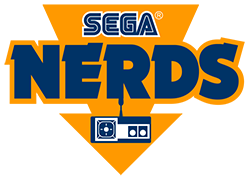
Sega’s Love-In With the NFL Through the Years
The NFL is arguably America’s best-loved sporting franchise. There are few other sports that manage to enchant the entire nation quite like gridiron. We’re not just talking about the Super Bowl either. College football attracts some of the biggest sporting attendances in the world, not just in the US. Then there’s the NFL’s regular season too, with all the battles for regional dominance that this entails.
The 2020 NFL season has only been finished a matter of weeks, but already the leading NFL pundits like Brian Good and Samuel Farley are discussing the Draft for the new campaign. It’s little surprise that NFL has become one of the most played sport-sim video games stateside – even on SEGA consoles. In fact, SEGA’s love affair with American football dates back as far as the late 1980s, as we’ll discuss in more detail below.
The early days of Great Football and Walter Payton Football
The very first Sega-based iteration of an American football video game was Great Football on the Master System, followed by Walter Payton Football. The latter certainly made a big impression, with surprisingly intuitive gameplay and a solid playbook that helped players feel in the thick of the action. Ironically, neither of these titles would make it to the Sega Genesis, with the first professional football sim on the Genesis outsourced to Electronic Arts – the same company that later would secure a monopoly over Sega by acquiring exclusivity for NFL rights for its Madden franchise.
Joe Montana was marketing gold
The original Sega football game on the Genesis was Joe Montana Football, published in 1991. On the face of it, Joe Montana played very similarly to John Madden Football – the fact that the game engines were almost the same might have had something to do with it. Nevertheless, the gameplay of Joe Montana, with a simplified passing dynamic, helped appeal to the casual gaming audience. The Joe Montana franchise was developed by BlueSky Software, who continued to produce the NFL Sports Talk Football and NFL Football 94 games.
The emergence of the Madden franchise
By the time of NFL 97 on the Sega Saturn, the main competitor, the Madden series, was very much alive and kicking. Padded Cell Studios of Batman Returns fame were selected to produce Madden 97. The game included a new passing feature, allowing players to use a blue arc to point to a specific area on the field for the wide receivers to run onto.
Madden 97 was the only football game developed in-house at Sega for the Saturn. Relations between Sega and Electronic Arts soured further when EA opted not to allow Madden and its other sports titles to be released on the Sega Dreamcast in 1999. The lack of sports sim video games on the Dreamcast was one of the core reasons behind its poor commercial performance, leading to Sega ceasing development of future games consoles and allowing Sony and Microsoft to take the lead.
NFL 2K and its critical roadblock

Sega’s NFL 2K is still regarded by many in the video games industry as one of the most transformative sports sim titles in history. Celebrating the new millennium, Sega invested heavily in revolutionary new graphics as well as incredibly responsive commentary. A year later, NFL 2K1 became the first football video game to enable online gaming via modem.
By NFL 2K5, Sega knew it was on a hiding to nothing against EA. After selling NFL 2K5 at rock-bottom prices as a loss-leader to try and dominate the market that year, EA had the last laugh at the end of 2004. The company agreed a lucrative $300m contract with the NFL, handing them exclusivity over player and team rights for their games.
This marked the final nail in the coffin of Sega’s relationship with football games. All Pro Football 2K8 was the final shot at modifying the classic NFL 2K game engine, but even this underperformed at the stores, confining Sega’s football ingenuity to the history books, at least for the time being. Their exclusivity deal is now at an official end, but it remains to be seen whether Sega have the in-house capabilities – or the appetite – to have another crack at this market.





